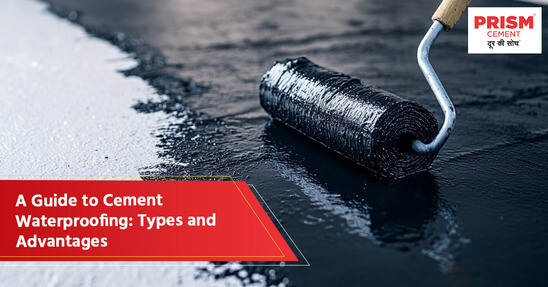Waterproofing is a crucial aspect of construction, ensuring the longevity and durability of structures. Cement-based waterproofing solutions offer a reliable and effective way to protect buildings from moisture damage. In this blog post, we explore the different types of cement waterproofing and their advantages.
Understanding Cement Waterproofing
Cement waterproofing involves applying specialized coatings or membranes to surfaces to prevent water penetration. These solutions are typically made from cement, polymers or a combination of both, providing a durable and water-resistant barrier.
Types of Cement Waterproofing
- Cementitious Waterproofing:
- Advantages:
- Durable and long-lasting
- Resistant to chemicals and abrasion
- Suitable for both interior and exterior applications
- Can be applied directly to concrete surfaces
- Types:
- Polymer-modified cementitious waterproofing: Offers enhanced flexibility and crack-bridging capabilities
- Crystalline waterproofing: Penetrates into concrete pores and forms a crystalline barrier against water
- Advantages:
- Bituminous Waterproofing:
- Advantages:
- Highly effective against water pressure
- Suitable for basements, tunnels, and underground structures
- Can be applied in hot or cold weather conditions
- Types:
- Hot-applied bitumen: Requires heating and application with specialized equipment
- Cold-applied bitumen: Pre-mixed and ready-to-use, offering convenience and ease of application
- Advantages:
- Membrane Waterproofing:
- Advantages:
- Provides a physical barrier against water
- Suitable for flat roofs, balconies and terraces
- Can be applied in various thicknesses to meet specific requirements
- Types:
- PVC membranes: Flexible and durable, offering excellent resistance to weather
- EPDM membranes: Rubber-based membranes known for their elasticity and long lifespan
- TPO membranes: Thermoplastic polyolefin membranes offer good resistance to chemicals and UV radiation
- Advantages:
Advantages of Cement Waterproofing
- Durability: Cement-based waterproofing solutions are known for their longevity and resistance to weathering.
- Flexibility: Many types of cement waterproofing are flexible, allowing them to accommodate minor movements in structures.
- Adhesion: These solutions adhere well to concrete and other substrates, creating a strong and durable bond.
- Resistance: Cement waterproofing is resistant to chemicals, abrasion and root penetration.
- Cost-effectiveness: In the long run, cement waterproofing can be a cost-effective solution compared to other methods, as it can help prevent costly water damage.
Choosing the Right Waterproofing Solution
Selecting the ideal cement waterproofing solution for your project depends on the structure's specific needs, the climate and your budget. Prism Cement’s Prism Champion All Weather Cement stands out for its superior performance in various weather conditions, ensuring your construction remains robust and resilient. Trust Prism Cement to protect your projects with unmatched reliability.




